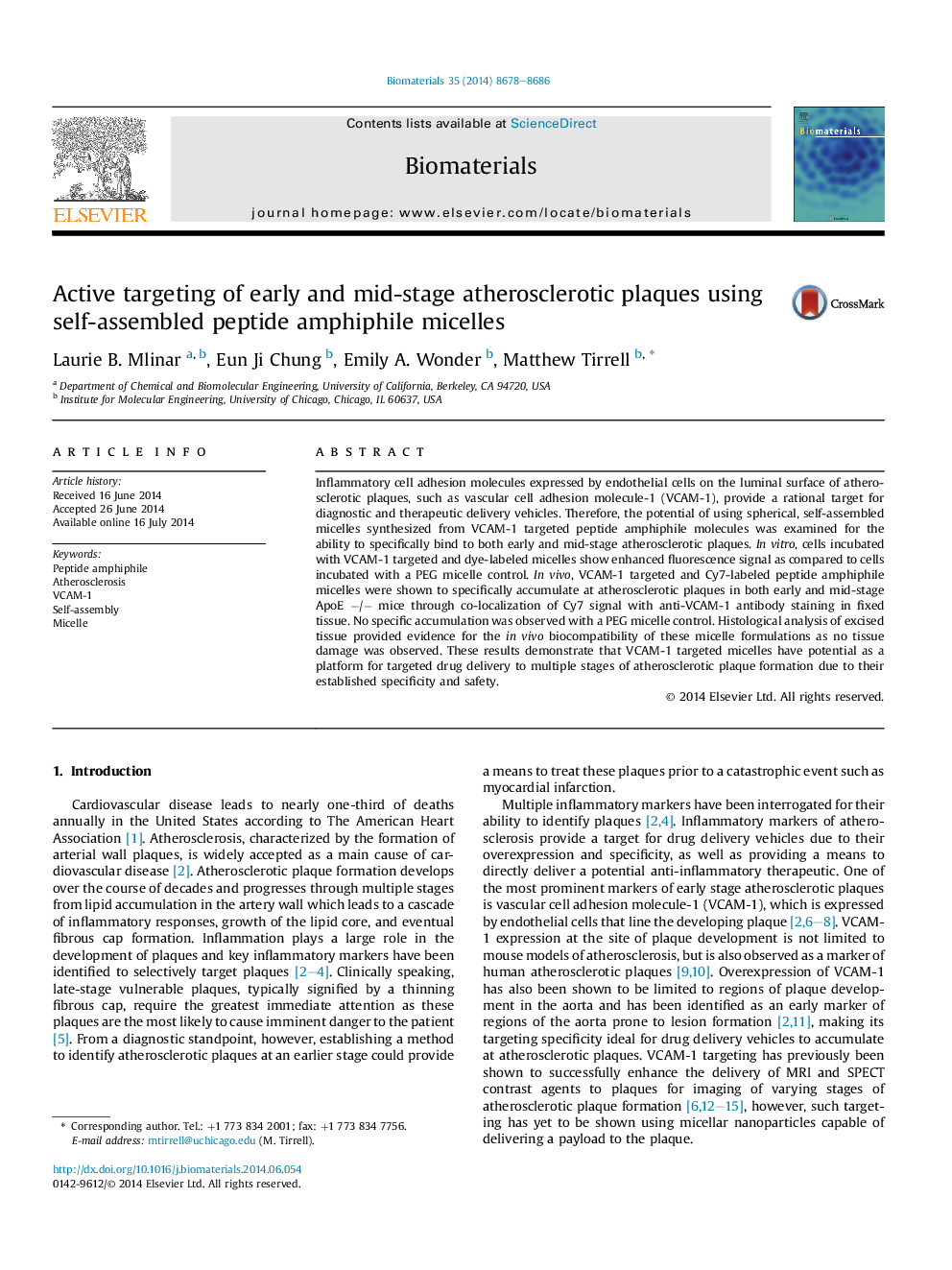| Article ID | Journal | Published Year | Pages | File Type |
|---|---|---|---|---|
| 10227394 | Biomaterials | 2014 | 9 Pages |
Abstract
Inflammatory cell adhesion molecules expressed by endothelial cells on the luminal surface of atherosclerotic plaques, such as vascular cell adhesion molecule-1 (VCAM-1), provide a rational target for diagnostic and therapeutic delivery vehicles. Therefore, the potential of using spherical, self-assembled micelles synthesized from VCAM-1 targeted peptide amphiphile molecules was examined for the ability to specifically bind to both early and mid-stage atherosclerotic plaques. In vitro, cells incubated with VCAM-1 targeted and dye-labeled micelles show enhanced fluorescence signal as compared to cells incubated with a PEG micelle control. In vivo, VCAM-1 targeted and Cy7-labeled peptide amphiphile micelles were shown to specifically accumulate at atherosclerotic plaques in both early and mid-stage ApoE â/â mice through co-localization of Cy7 signal with anti-VCAM-1 antibody staining in fixed tissue. No specific accumulation was observed with a PEG micelle control. Histological analysis of excised tissue provided evidence for the in vivo biocompatibility of these micelle formulations as no tissue damage was observed. These results demonstrate that VCAM-1 targeted micelles have potential as a platform for targeted drug delivery to multiple stages of atherosclerotic plaque formation due to their established specificity and safety.
Related Topics
Physical Sciences and Engineering
Chemical Engineering
Bioengineering
Authors
Laurie B. Mlinar, Eun Ji Chung, Emily A. Wonder, Matthew Tirrell,
